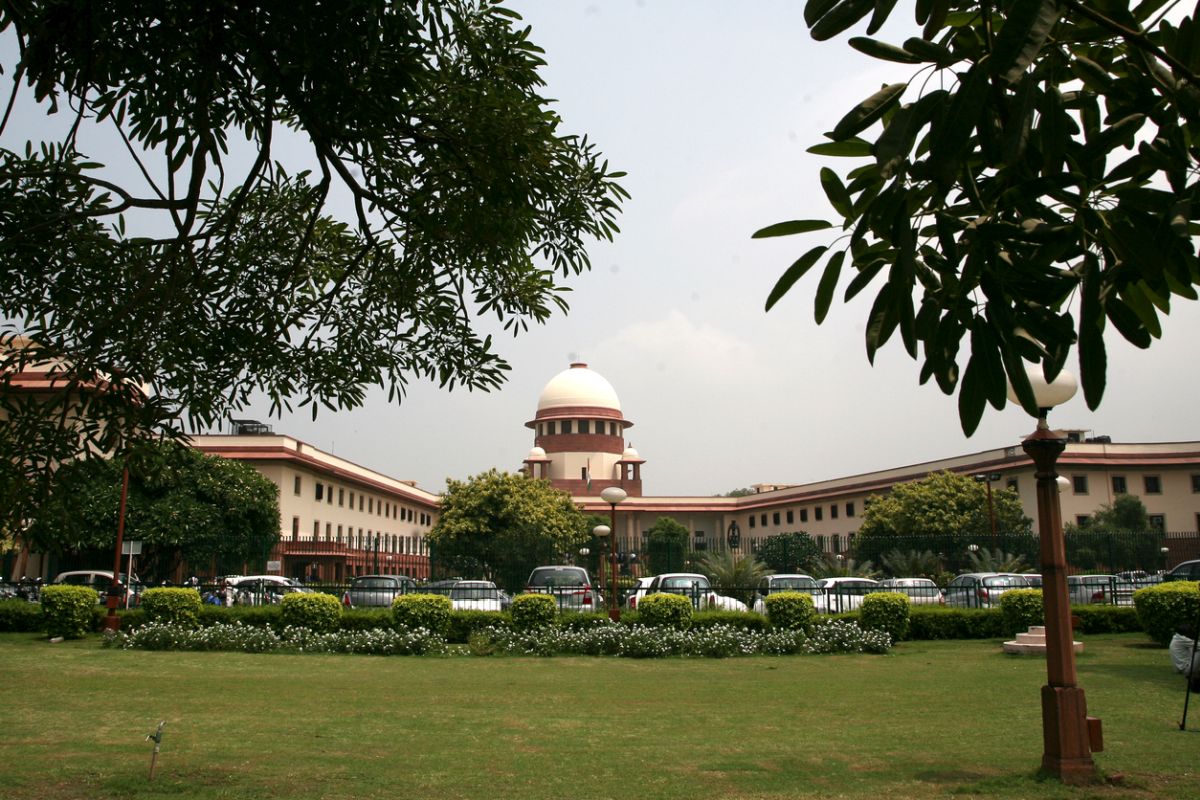UP CM Yogi urges youth to be job creators, not seekers
Uttar Pradesh Chief Minister Yogi Adityanath visited Agra on Sunday to strategise investment promotion in the state and turn proposals into reality.
On Wednesday, senior advocate Meenakshi Arora, also representing the Muslim parties, questioned the 2003 Archeological Survey of India report on excavations of Babri Masjid site, saying every chapter is attributed to an author but the summary has not been attributed to anyone.

Supreme Court, New Delhi. (Image: iStock)
A day after they questioned the 2003 report by the Archeological Survey of India on the excavations at Babri Masjid site for its “palpable and inherent” infirmities and inconsistencies, the Muslim parties today took a U-turn and apologised to the Supreme Court for wasting it’s time in the Ayodhya land dispute case.
A five-judge constitution bench headed by Chief Justice Ranjan Gogoi was told by senior advocate Rajeev Dhavan that they do not wish to question the authorship of the summary of the ASI report.
Advertisement
“It is not expected that every page is to be signed. The authorship of the report and the summary need not be questioned. If we had wasted my lords time, then we apologise for that. There is no point going into that,” he said.
Advertisement
“The report in question has an author and we are not questioning the authorship,” Dhavan, representing the Muslim parties, said.
On Wednesday, senior advocate Meenakshi Arora, also representing the Muslim parties, questioned the 2003 ASI report saying every chapter is attributed to an author but the summary has not been attributed to anyone.
The bench also comprising Justices SA Bobde, DY Chandrachud, Ashok Bhushan and S Abdul Nazeer said that Dhavan in his opening remark has said that he has not forfeited his right to question the report but the evidences cannot be discredited after being accepted by the court.
At the outset, the bench asked both Hindu and Muslim parties to specify the time frame for completing the argument saying that there will not be any extra day after October 18. It said there are holidays in October and only one advocate of the four Hindu parties will be allowed to give rejoinder arguments.
“There will not be any extra day after October 18. It will be miraculous, if we deliver the judgement in four weeks in the matter,” Chief Justice Gogoi said. The top court asked the Muslim parties to wrap up their arguments on the ASI report during the course of the day.
The Court also said that the Muslim parties cannot question the ASI report now since they did not question it when the matter was being heard in the Allahabad High Court. The excavation of the disputed land was ordered by the Allahabad High Court in a judicial direction.
Advertisement